The image of Alzheimer's or Parkinson's patients gradually losing their memory, losing their mobility and being completely dependent on their relatives for care has become a haunting image in many countries facing an aging population. However, most of the current diagnostic methods such as computed tomography (CT), magnetic resonance imaging (MRI) or positron emission tomography (PET) are only used to diagnose the disease when symptoms have clearly appeared. According to scientists at the Vietnam - Korea Institute of Science and Technology (VKIST), these devices are cumbersome, require high expertise to use and are expensive, so they can only be performed in hospitals when doctors deem it necessary. This means that the "golden period" opportunity for early intervention, slowing the disease progression or improving the patient's quality of life has been missed.
Speaking at the K-Medi Forum 2025, the VKIST research team led by MSc. Do Hong Phuc - a researcher in the Department of Developing Integrated Technology, presented a study using EEG (electroencephalogram) signals collected during sleep combined with machine learning algorithms to detect early signs of brain abnormalities.
"EEG is a non-invasive, low-cost method, and can be completely deployed for monitoring at home if the device is designed as a wearable. Combining it with AI helps identify very small changes in brain electrical signals - something that is difficult for the human eye to detect," said Master. Phuc.
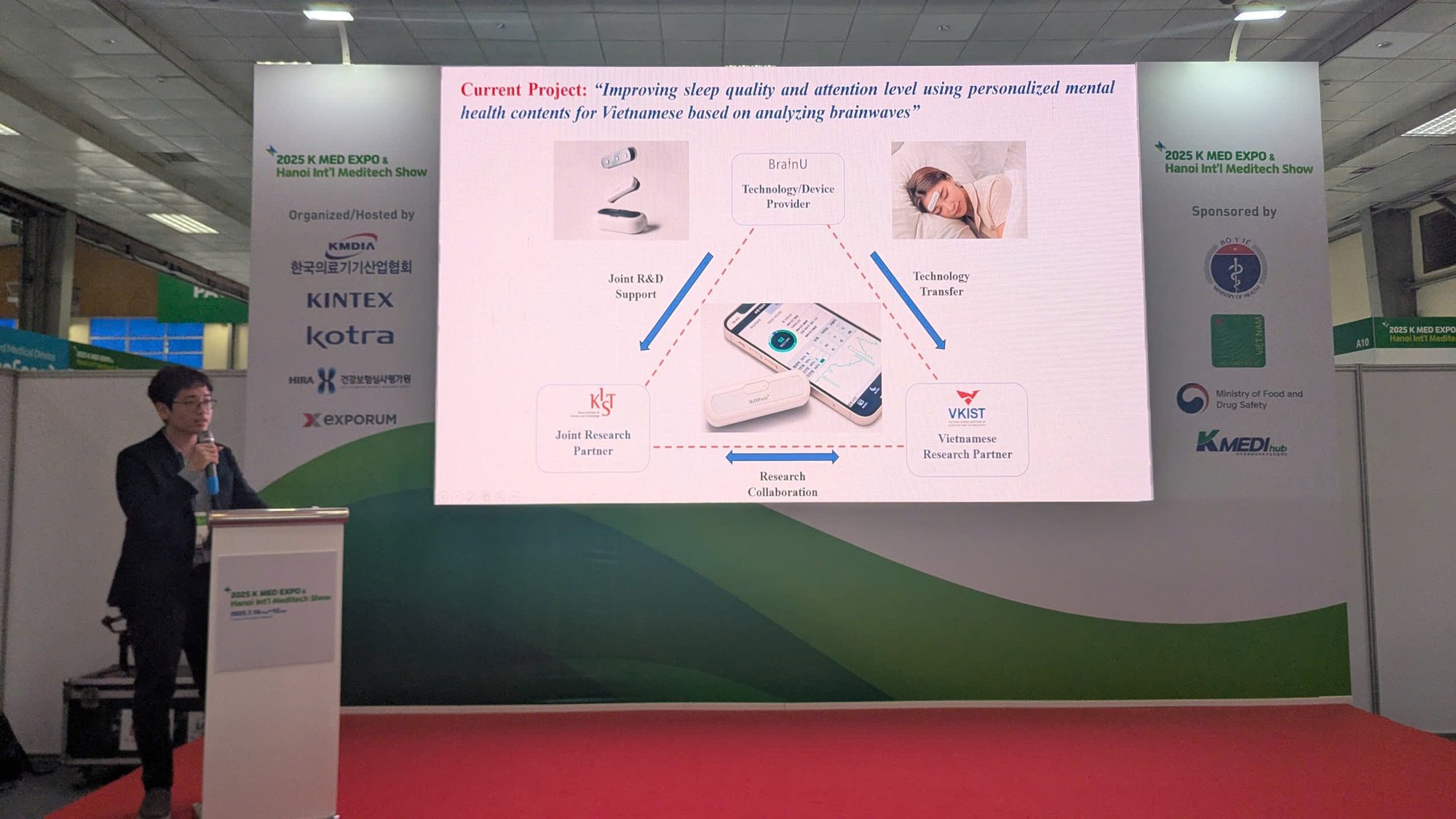
VKIST research team presents research on electroencephalography (EEG) and machine learning applications at K-Medi Forum 2025.
According to the research team, the EEG measurement process is performed through a head-worn device that is capable of recording brain waves in different sleep stages - from wakefulness, sleep (N1, N2), deep sleep (N3) to REM. The characteristic EEG waves in each stage are analyzed by a machine learning algorithm to detect abnormalities related to neurodegeneration.
Notably, VKIST's model not only focuses on disease detection, but also aims to assess sleep quality and attention - two factors that are often affected early in Alzheimer's or Parkinson's patients but are easily overlooked.
"We are developing a personalized system that can provide relaxing content that matches the brainwave characteristics of Vietnamese people, contributing to improving sleep and long-term health," shared Master Phuc.
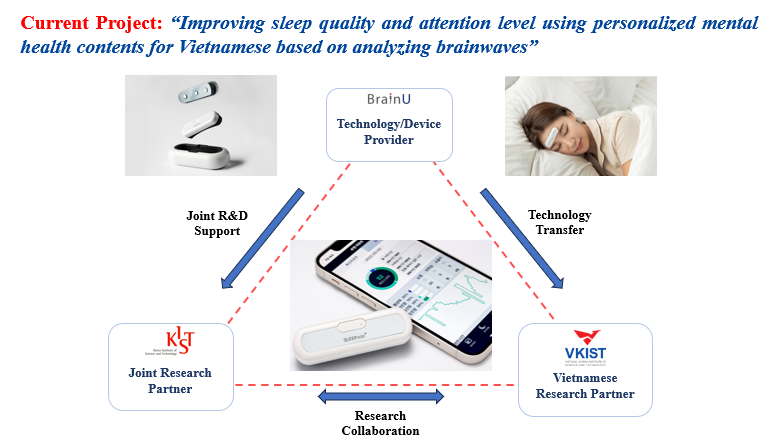
EEG device developed by VKIST.
Unlike traditional EEG systems that are bulky, expensive, and require operation in a hospital environment, the wearable EEG device that VKIST is researching is compact, easy to use, and especially suitable for long-term monitoring at home. This is also the trend that many international biomedical centers are pursuing to shift medicine from treatment centers to proactive care in the community.
Not stopping at the research model, VKIST said it is expanding R&D cooperation, technology transfer and seeking industrial partners to commercialize these smart EEG solutions. In its development orientation, the institute hopes to contribute to providing effective, low-cost early diagnosis tools for the Vietnamese healthcare system in the context of an increasing proportion of elderly people.
Source: https://mst.gov.vn/vkist-gioi-thieu-giai-phap-eeg-ung-dung-ai-huong-di-moi-trong-chan-doan-som-benh-thoai-hoa-than-kinh-197250801134244784.htm





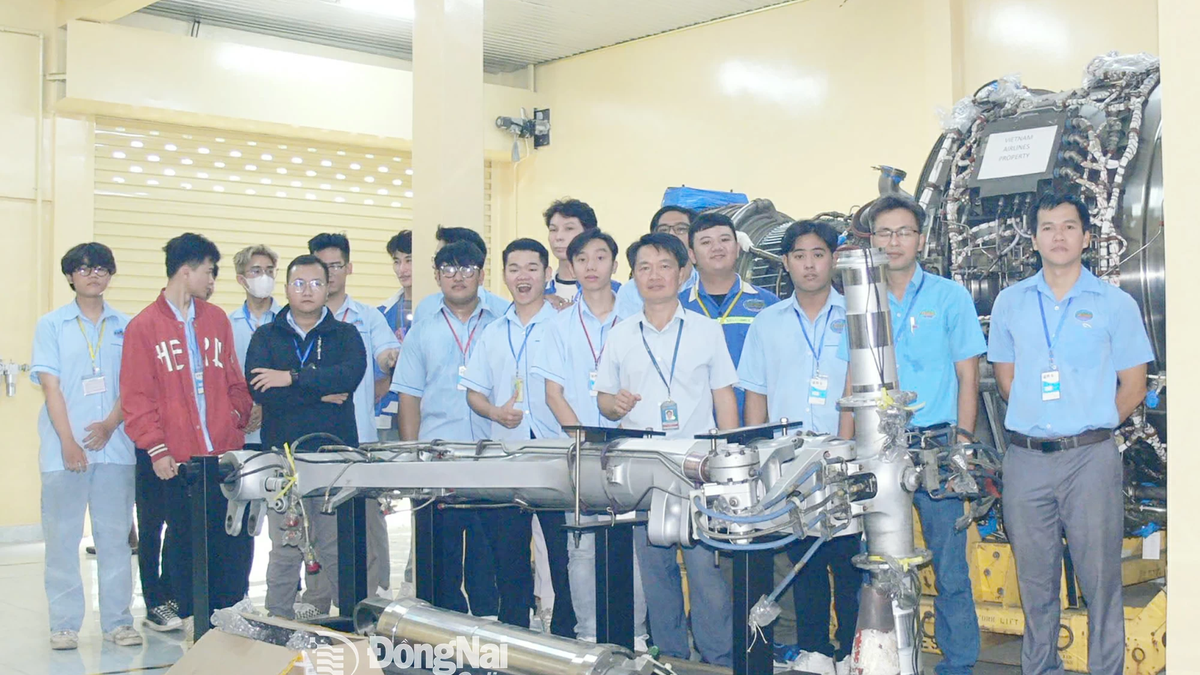
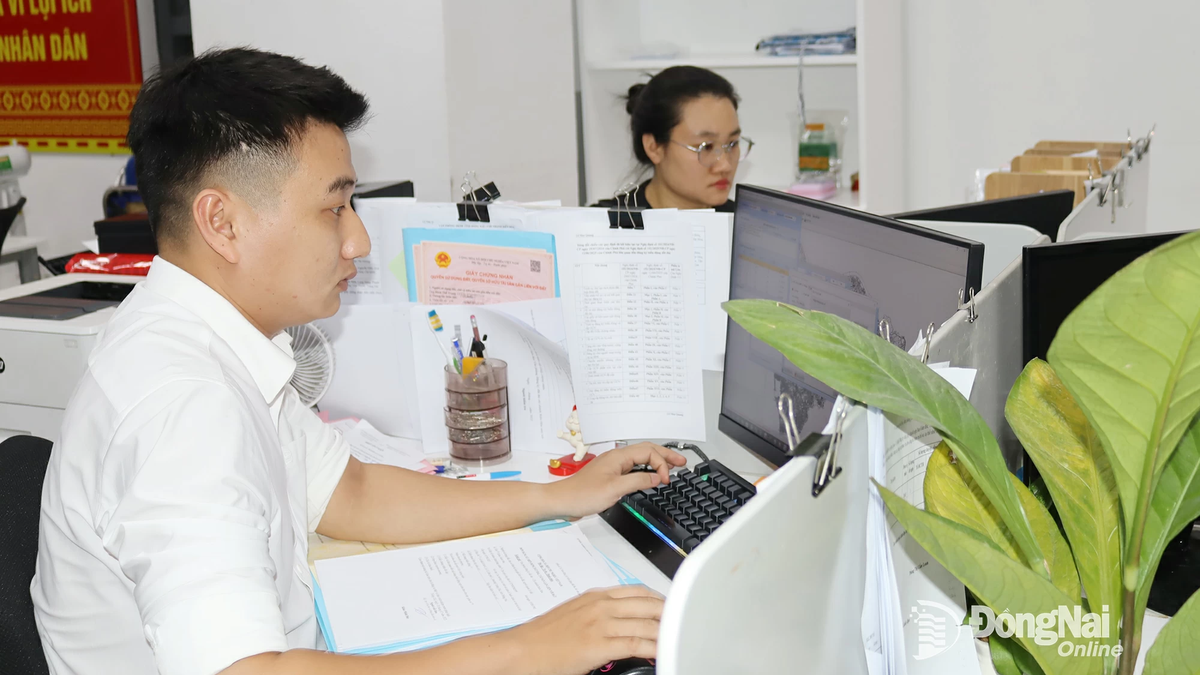

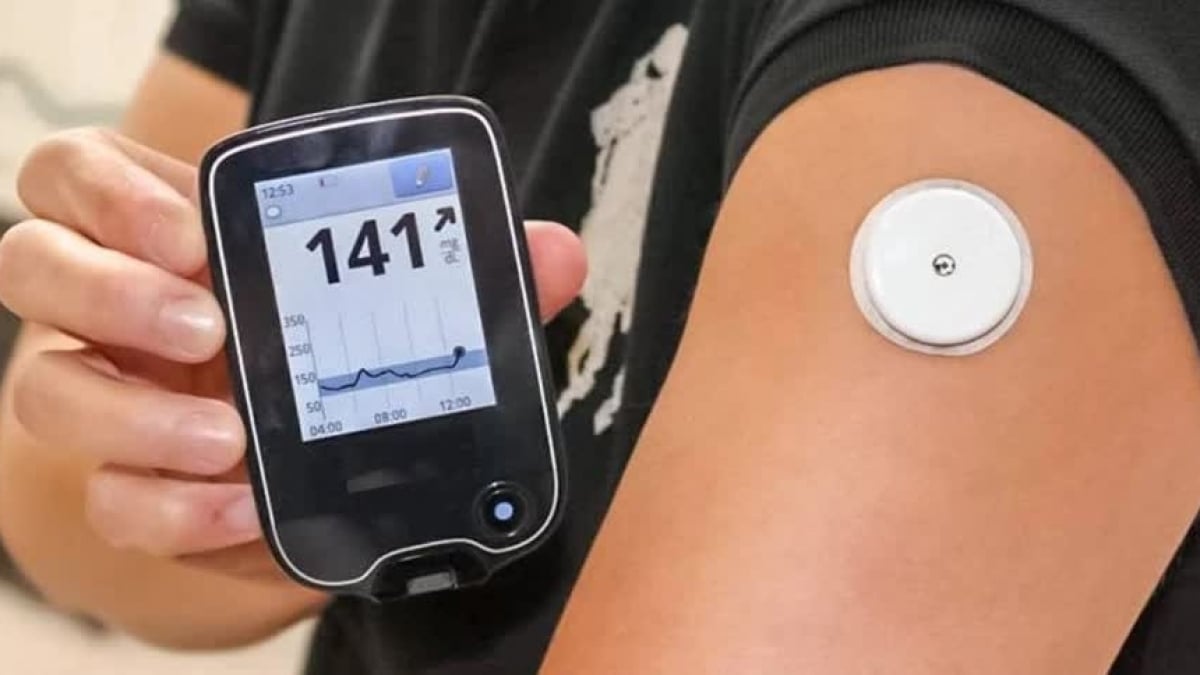






























































































Comment (0)